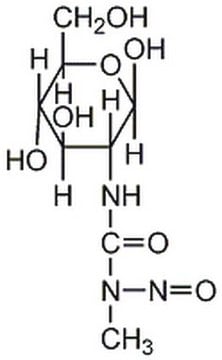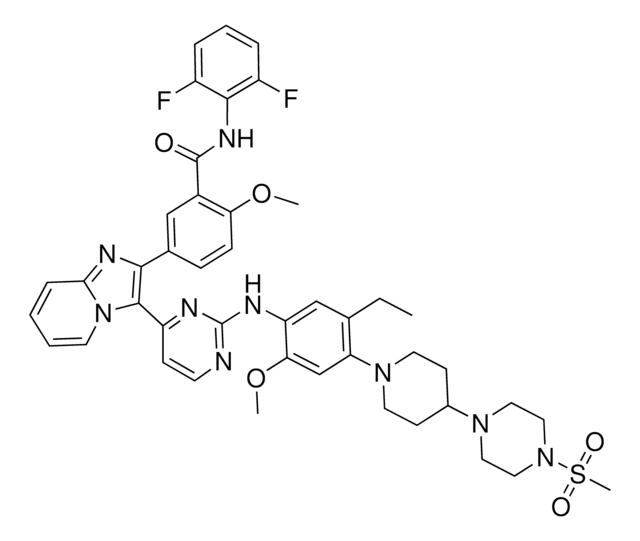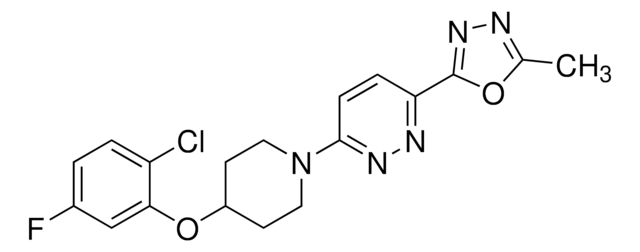PZ0176
SC-26196
≥98% (HPLC)
Synonym(s):
SC-26196, a,a-diphenyl-4-[(3-pyridinylmethylene)amino]-1-piperazinepentanenitrile; 2,2-diphenyl-5-(4-[[(1 E)-pyridin-3-yl-methylidene]amino]piperazin-1-yl)pentanenitrile
About This Item
Recommended Products
Quality Level
Assay
≥98% (HPLC)
form
powder
color
white to tan
solubility
DMSO: ≥10 mg/mL
storage temp.
2-8°C
SMILES string
N#CC(CCCN1CCN(CC1)\N=C\c2cccnc2)(c3ccccc3)c4ccccc4
InChI
1S/C27H29N5/c28-23-27(25-10-3-1-4-11-25,26-12-5-2-6-13-26)14-8-16-31-17-19-32(20-18-31)30-22-24-9-7-15-29-21-24/h1-7,9-13,15,21-22H,8,14,16-20H2/b30-22+
InChI key
QFYKXKMYVYOUNJ-JBASAIQMSA-N
Application
- in mouse inner medullary collecting duct (IMCD3) and human (female) embryonic kidney (HEK) 293 cell culture as Dulbecco′s modified eagle′s medium (DMEM) component
- in hepatic HepG2 cells
- in glioblastoma cell lines to test its effect post-radiation treatments
Biochem/physiol Actions
Storage Class Code
11 - Combustible Solids
WGK
WGK 3
Flash Point(F)
Not applicable
Flash Point(C)
Not applicable
Certificates of Analysis (COA)
Search for Certificates of Analysis (COA) by entering the products Lot/Batch Number. Lot and Batch Numbers can be found on a product’s label following the words ‘Lot’ or ‘Batch’.
Already Own This Product?
Find documentation for the products that you have recently purchased in the Document Library.
Articles
Discover Bioactive Small Molecules for Lipid Signaling Research
Discover Bioactive Small Molecules for Lipid Signaling Research
Discover Bioactive Small Molecules for Lipid Signaling Research
Discover Bioactive Small Molecules for Lipid Signaling Research
Our team of scientists has experience in all areas of research including Life Science, Material Science, Chemical Synthesis, Chromatography, Analytical and many others.
Contact Technical Service







